
Home Generators – What Type Should You Purchase?
by Angel
Purchasing a home generator is a big investment. What kind of generator is best for your home?
Home Generator Selection
There are a few questions you should ask yourself before determining what home generator to buy.
-
How convenient do I want this process to be when power is lost?
-
What is my primary fuel source going to be?
-
How long will it typically need to run when power is lost?
Convenience
To answer the first question, how easy do you want this process to be? When you lose power, do you mind getting up and doing the following:
- Pull out the generator
- Make electrical connections
- Make fuel connections
If you don't mind doing this during a storm or just before an event then you will be satisfied with a portable generator. It can be stored in your garage or shed until the time you need to pull it out and hook it up. Returned to storage after used. You can also have an electrical contractor pre-wire everything so that it is more of a plug and use scenario.
If you do mind doing this then you would consider a permanent home generator with automatic transfer switch. When power is lost, the transfer switch senses a loss in load and transfers your house load(s) to the generator automatically. You don't have to touch a thing. It is all automatic with no manual operation.
Of course! You want the convenience of automatic operation. Understand that this convenience comes with a price tag. It is the most expensive option. But by far the best option if you are looking for that convenience.
Fuel Source
Portable generators are typically gasoline fueled. Their gas tanks are good between 8-12 hours at 50% load. You will have to refill the tank when it runs out. Make sure you have plenty of gasoline on hand during times of possible power outages.
Permanently installed generators are either Propane (LP) or Natural Gas (NG). The gas supply is connected to the generator set at all times. If Propane (LP) is your fuel of choice, you will need to have a propane tank appropriately sized by the gas company for the estimated usage of your generator. Natural gas is piped into the generator set and is readily available when needed.
Diesel generators are available for home use but not as common. They would be supplied with a diesel fuel tank of some type. It would be sized for a determined amount of time (for example, 8 hrs, 12 hrs, 24hrs at full load). Diesel fuel would have to be brought out to the tank and filled once down to a certain level. These generator sets are far more expensive than the types we are discussing in this article.
How Long Will Your Home Generator Typically Run?
Where you live will affect the answer to this question. Some additional questions you should ask yourself. How frequently do you lose power? Do you live in a windy area where you lose power once a week for 2 hours? Do you live where there are a lot of hurricanes, thunderstorms, etc.? Once you lose power, how long do you typically go without power?
If you are finding that it is probable that you will run your generator for extended periods of time then you should probably go with a permanently installed home generator.
A portable generator is typically not sized to run loads for extended periods of time and the fuel tanks are so small that it doesn't make sense anyway. Most manufacturers do not recommend running the smaller portable generators for any longer than 8 hours at at time. I personally have seen them run for 24 hours straight after Hurricane Isabel without problem. I would not suggest doing that often as it may void warranties.
Portable Home Generator Options
I have selected two different models as portable home generator examples. They both have very reliable engines and in my experience have a good reputation in the market place.
Honda Powermate, 8750W
Features:
- 7000W or 7kW running load capacity
- 8750 Surge Watts capacity
- 8 gallon or 12.3 hr fuel tank at 50% load
- 4 -120V outlets, (1) 240/120V twist lock receptacle with circuit breaker protection
- Wheel kit
- Non CARB – Can not be sold or used in California due to emissions requirements
- Dimensions – 24.2 x 21 x 31.2, No weight given
Briggs & Stratton – 8750W
Features:
- 7000W or 7kW running load capacity
- 8750W Surge Watts capacity
- 7 gallon, 8hr at 50% load fuel tank
- 1- 120V 30A locking outlet
- 4- 120VAC outlets
- Non CARB – Can not be sold in California due to emissions requirements
- Dimensions – 34.8 x 22.8 x 25.9, 255lbs.
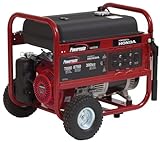 |  |
| Powermate PM0497000.04 8,750 Watt 389... | Briggs & Stratton 30470 8,750 Watt 42... |
Permanent Home Generator Options
Generac is the most common home generator out there today. It is also the most economical. I have selected a few of their available sizes with various options to show you what you can purchase for the price.
All of the generators come with the following:
- Pre-wired and equipped with all necessary installation components.
- Automatic Transfer Switch with weekly exercise option
- Pre-wired Conduits
- Outdoor Connection Box
- Flex Fuel Line Pigtail
- Composite Mounting Pad
- Corrosion resistant enclosure – galvanized steel or aluminum
- UL Listed
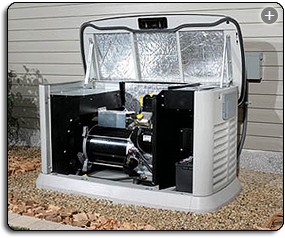 Amazon.com |
Generac 8,000W LP Fuel / 7000W Natural Gas
Features:
- 100Amp Automatic Transfer Switch with 8 circuit load center, NEMA 1 inside use
- Galvanized Steel Enclosure
- 30ft., 5ft., and 2ft., prewired conduits
- Outdoor Connection Box
- 1 ft. Flex Fuel Line Pigtail
- Composite Mounting Pad
- Installation Guide, Owner's Manual
- DOES NOT INCLUDE BATTERY – Requires minimum of Group 26R, 12V min., 350CCA
- Dimensions – 48” x 25”x 29”, 336 lbs.
Generac 8000W Generator
 |
| Generac Guardian Series 5870 8,000 Wa... |
Generac 17,000W LP Fuel / 16,000W Natural Gas
Features:
- 100Amp Automatic Transfer Switch with 16 circuit load center, NEMA 1 inside use
- Galvanized Steel Enclosure
- 30ft., 5ft., and 2ft., prewired conduits
- Outdoor Connection Box
- 1 ft. Flex Fuel Line Pigtail
- Composite Mounting Pad
- Installation Guide, Owner's Manual
- DOES NOT INCLUDE BATTERY – Requires minimum of Group 26R, 12V min., 350CCA
- Dimensions – 48” x 25”x 29”, 336 lbs.
Generac 17,000W Generator
 |
| Generac Guardian Series 5873 17,000 W... Only $4613.00 |
Generac 20,000W LP Fuel / 20,000W Natural Gas
Features:
Intended for Whole House Use – For most traditional homes – loads must be verified before it can be considered meeting your whole house requirements.
- 200Amp Automatic Transfer Switch, Service Entrance Rated NEMA 3R outside use
- Aluminum Enclosure
- 1 ft. Flex Fuel Line Pigtail
- Composite Mounting Pad
- Installation Guide, Owner's Manual
- DOES NOT INCLUDE BATTERY – Requires minimum of Group 26R, 12V min., 525CCA
- Dimensions – 48” x 25”x 29”, 336 lbs.
Generac 20,000W Generator
 |
| Generac Guardian Series 5875 20,000 W... |
Home Generator Sizing Considerations
This is the tricky part. There are no real rules of thumb that I would suggest sticking to other than taking a look at your actual loads that will be backed up by the generator and determine what your Starting Watts will be and what your Running Watts will be.
When starting a motor, the Starting Watts is more than the Running Watts. Take a look at some typical household loads and compare the Running Watts to the Starting Watts below. These are “typical” values. Your specific loads should be checked before you settle on a size to purchase. This can be done by looking at all the nameplate data on the devices that you are going to be backing up with the generator.
If you have problems finding this information, consult a local electrical contractor for help. A contractor is required to install the generator and can provide the sizing as part of their service to you.
Running Load Starting Load
Television 300 Watts 300 Watts
Refrigerator 600 Watts 1950 Watts
Hot Water Heater 5000 Watts 5000 Watts
A/C Unit, 12000BTU 1900 Watts 7600 Watts
You see the difference between Running Load / Running Watts and Starting Load or Starting Watts? Do NOT size your generator for Running Load. You will most likely have problems getting it to start.
Additional Tips
-
Make sure that your generator is suitable for sensitive loads if you will have any electronic type loads connected to it. Such as your computer. Things like electronic governors are required to properly interface with sensitive loads.
-
Maintenance is recommended on the permanent home generators every 200 hours or once every 2 years. Which ever occurs first. Refer to the manufacturer recommendations to make sure the maintenance schedule is followed.
-
Maintenance on the portable generator sets are typically done after the first 5 hours of service and then annually thereafter. Refer to the manufacturer recommendations to make sure the maintenance schedule is followed.
-
Never allow your generator set to run out of fuel. It can cause damage and warranties will be voided.
-
Only a licensed electrical contractor should install the permanent home generator. It is recommended that a contractor also make connections when dealing with a portable if you do not have the experience to do so. As part of their installation price, they can also provide the service of sizing the generator for your home. Use their expertise.
-
Ask your electrician if they have any type of maintenance plan available through their company that you can sign up for at an additional fee. Let them service your generator set at the manufacturers recommended intervals. Also, with Generac, I have seen that dealing with a local contractor on the service is much easier than dealing with Generac Service Direct. You tend to get lost when dealing with them direct. Your contractor will make sure you are taken care of. Another option would be to find a local Generac dealer and sign up for a maintenance plan through them. They will make sure you are taken care of and they have to deal with the manufacturer direct. Not you.
My Background in Generators
I have been in the Power Generation Industry for 20 years working for generator companies such as Caterpillar, Cummins/Onan, and Detroit Diesel. I have worked in engineering and sales capacities at these companies. I sold generators for most of my career. Buying a home generator is a good investment regardless of the type. It can increase the value of your home if permanently attached. It can save you a lot of discomfort during times of bad weather or disaster. I have seen many things in my time with generators and hope that this article is helpful for you to make that decision to buy a home generator. If you have any questions, feel free to ask.
You might also like
A Power Backup System Will Help Get Through a Prolonged Power ...After a storm knocks out power, it is important to get an alternate power sou...
Inexpensive Easy to Use Stand MixerCombination stand and handheld mixer makes the perfect two-in-one kitchen app...
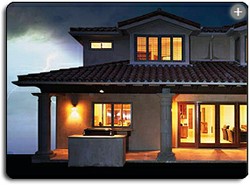

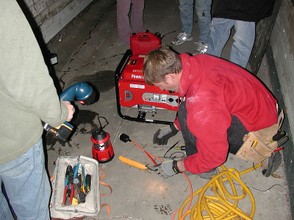
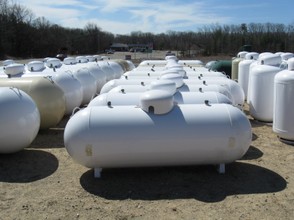
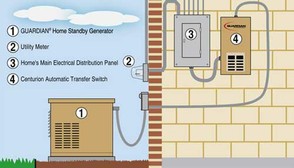

 Best Vitamin C Serum for Your Skinon 06/21/2012
Best Vitamin C Serum for Your Skinon 06/21/2012
 Is Hyaluronic Acid the Fountain of Youth?on 06/17/2012
Is Hyaluronic Acid the Fountain of Youth?on 06/17/2012
 Shiseido Skin Careon 06/10/2012
Shiseido Skin Careon 06/10/2012
 Aerogarden – No Green Thumb Neededon 06/08/2012
Aerogarden – No Green Thumb Neededon 06/08/2012
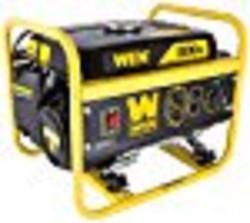
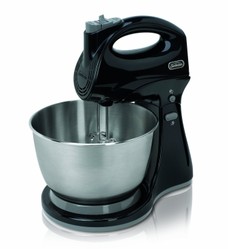
Comments
Hi Janet - unfortunately many people go through an event like that before they decide to actually make the investment. I have worked in generators for a long time and seen many different things. A lot of businesses lose so much money when power is lost. Generators are like insurance I guess. You hope you never need it but it is there for when you do. Thanks so much for reading and commenting.
Great page, lots of useful info!
Thankfully we have a home generator. Last August we lost power for 5 days when Hurricane Irene hit New York. Our generator was a life saver! It provided us with running water, hot and cold food, lights and tv/computer access. I honestly do not know what we would have done without it. Many people I know who didn't have a generator bought one after the storm because they never wanted to live through that again.
There is too much to learn about generators. I always said there are about 5 rules and 5000 exceptions in this industry. Thanks for reading and commenting!
A very informative post indeed! Suddenly I feel like there's still a lot to learn about generators. Really enjoyed reading your post. I'm sure this will help consumers choose the best generator that will fit their lifestyles.
Thanks Katie - I sold generators for so long I figured I needed to write something about them. There is a lot of information here and I found it hard to organize it so it was understandable. Hope it wasn't too much... thanks for reading and commenting.
WOW, I'm blown away with the informative facts here. Now I know I need one and what type of generator to get. Thanks for the facts.